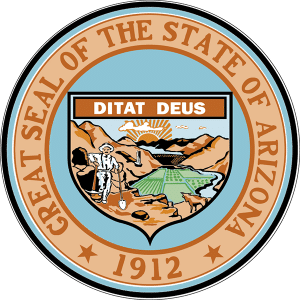
Guide to Gambling & Casinos in Arizona
Learn all about the gambling scene in Arizona, featuring sweepstakes casinos alongside a multiple other gaming options.
Arizona State Guide
First, let's outline all the legalized forms of gambling in the state:
✅ Social and Sweepstakes Casinos
❌ Online Casinos
✅ Land-Based Casinos
✅ Online Sports Betting
✅ Online Horse Betting
Arizona boasts dozens of tribal casinos where you can place wagers on hundreds of different games like poker, table games, and slots. However, online real-money casinos are yet illegal, and as a substitute social or sweepstakes casinos have become increasingly popular.
Continue reading as we delve into the casino offerings as well as all other gambling options in The Grand Canyon State.
Top Casinos
FAQ
-
Is online gambling legal in Arizona?
-
What is the gambling age in Arizona?
-
Are online casinos legal in Arizona?
-
Is online sports betting legal in Arizona?
-
What types of gambling are available in Arizona?
-
Is online horse betting legal in AZ?
-
Are sweepstakes casinos legal in Arizona?
-
Can I win real money on social casinos in AZ?
Social Casinos in Arizona
Social casinos have emerged as a popular alternative to online real-money casinos in Arizona. Social or sweepstakes casinos offer players a unique and engaging gaming experience without the need for monetary risk. These online casinos provide a virtual environment where players can enjoy a variety of casino games, socialize with friends, and compete in tournaments, all while using virtual currency.
- Legal and Accessible: In Arizona, where regulations on real-money online casinos may be stringent, sweepstakes casinos provide a legal and enjoyable gaming option.
- Free-to-Play Model: One of the primary advantages of sweepstakes casinos is their free-to-play model. Players can participate in games using virtual currency, eliminating the need for real-money deposits.
- Opportunity to Win Prizes: Despite the absence of real-money wagering, sweepstakes casinos offer players the chance to win prizes through various promotions and sweepstakes. Players can accumulate virtual currency, participate in contests, and redeem rewards for real-world prizes, including cash, gift cards, and merchandise.
- Community and Social Interaction: Through features like chat rooms, leaderboards, and multiplayer games, players can connect with others, share experiences, and compete in friendly competitions.
- Variety of Games: Sweepstakes casinos boast a diverse selection of games, including slots, table games, poker, and more. With regular updates and new releases, players have access to a wide range of entertaining titles.
Top Picks for Social Casinos in AZ
In the realm of sweepstakes casinos, several establishments stand out for their exceptional offerings. Here are our top selections for recommended social casinos in Arizona:
Fortune Coins Casino Arizona
Fortune Coins Casino sets itself apart with a visually captivating design, taking Arizona players into a thrilling gaming environment. Standout among its offerings is the casino's exceptional new player offer, providing users with an enticing opportunity to claim virtual credits. This offer enables players to explore the extensive game library without committing real money upfront.
- Immersive Visual Design
- Generous New Player Offer
- Transparent Sweepstakes Model
High 5 Casino Arizona
High 5 Casino distinguishes itself with an award-winning online gambling experience, recognized for its excellence in providing top-tier entertainment to players in Arizona. At the heart of High 5 Casino lies its innovative game selection, featuring a captivating blend of slots, poker, and other popular casino games.
- Award-Winning Online Experience
- Innovative Games Selection
- Interactive Social Features
Pulsz Casino Arizona
Pulsz Casino offers a legal and exhilarating gaming experience to players across the United States, including Arizona. This sweepstakes casino stands out with its emphasis on rewarding players. Users are granted Gold Coins for free play, enabling them to enjoy a wide range of games without spending real money. Additionally, bonus Sweepstakes Coins are provided, giving players the opportunity to compete for and redeem lucrative prizes.
- Exciting Gaming Experience
- Generous User Rewards
- Accessible on All Devices
McLuck Casino Arizona
McLuck Casino sets itself apart with a wide-ranging library boasting more than 500 titles tailored for player enjoyment. Additionally, it offers the exclusive McJackpot, a progressive jackpot feature that transforms each spin into a chance for substantial rewards.
- Social Live Casino
- Unique Jackpot Features
- Great Welcome Bonus Package
- Exclusive Jackpots
- Loyalty Club
- Hundreds of Games
2.5 FREE Sweepstakes Coins
WOW Vegas Casino Arizona
WOW Vegas Casino stands out with its diverse gaming library, boasting over 700 slots and other popular casino games. Players in Arizona can explore a wide variety of options, ensuring there's something for every preference and taste. This social casino prioritizes simplicity and ease of use with its user-friendly design.
- Diverse Gaming Library
- User-Friendly Design
- Smooth Gameplay Across Devices
- Over 750 Casino Games
- Daily Log-In Bonuses
- Stellar Website Design
8,500 Wow Coins & 4.5 Sweep Coins
LuckyLand Slots Casino Arizona
LuckyLand Slots Casino prides itself on offering an extensive selection of exclusive slots. Players in Arizona can immerse themselves in a world of unique themes and gameplay experiences. Setting itself apart, LuckyLand Slots Casino features a distinctive loyalty program designed to reward players for their engagement. With escalating rewards and bonuses based on tier levels, the casino ensures that loyal players are generously rewarded.
- Unique Loyalty Program
- Exclusive Slot Selection
- Player-Centric Approach
- Great Bonus Welcome Package
- Generous Loyalty Program
- Smooth payment transactions
FREE 7,777 Gold Coins & 10 FREE Sweeps Coins
Chumba Casino Arizona
Chumba Casino has earned a highly regarded reputation in the world of sweepstakes gaming, placing a strong emphasis on safety, legitimacy, and player security. This sweepstakes casino provides a fun and secure platform for online gambling in Arizona. With a commitment to transparency, fairness, and responsible gaming practices, Chumba Casino offers players a safe and enjoyable gaming environment.
- Fun and Secure
- Reputation for Safety and Legitimacy
- Extensive Game Selection
- Legal in almost all states
- Easy and User-Friendly Interface
- Smooth Registration Process
2,000,000 FREE Gold Coins and 2 FREE Sweeps Coins
Stake.us Casino Arizona
Stake.us Casino stands as a favored destination for Arizona players with its wide array of slots and table games. Exclusive Stake Originals titles add a unique flair to the gaming experience, ensuring there's something for every taste and preference. With a website mirroring real-money online casinos, Stake.us Casino elevates the social gaming experience to new heights.
- Extensive Game Selection
- Realistic Online Experience
- VIP Club with Exclusive Rewards
MyJackPot.com Arizona
MyJackPot.com, developed by Whow, delivers a sensational social casino experience that captivates players in Arizona. At this sweepstakes casino, authenticity is key. MyJackPot strives to provide players with a genuine online casino experience, featuring realistic gameplay, immersive graphics, and engaging sound effects that transport players to the heart of the action.
- Focus on Authenticity
- Enticing Bonuses and Rewards
- Vast Selection of Lucrative Slots
Hard Rock Social Casino Arizona
Hard Rock Social Casino extends the renowned Hard Rock brand into the online gaming realm, offering players a unique and exhilarating gaming experience synonymous with the iconic retail casino brand. Featuring a Rewards Center for merchandise purchases and a daily lucky wheel spin, Hard Rock Social Casino goes above and beyond to enhance the gaming experience for players in Arizona.
- Rewards Center and Daily Lucky Wheel Spin
- Abundance of Rewards and Extras
- Standout Live Slots Feature
Are Online Casinos Legal in Arizona?
No, real-money online casinos are not permitted by Arizona law. However, players have the option to enjoy slots and table games on social or sweepstakes casinos. Online social casinos offer players the opportunity to play games without any cost. Moreover, most social casinos provide the chance to acquire Sweeps Coins, which can later be exchanged for prizes, including cash rewards.
Arizona also features numerous land-based casinos where patrons can engage in wagering on a plethora of games, ranging from poker to table games and slot machine games.
Brief History of Casinos and Gambling in Arizona
Below is a summary of the pivotal moments in Arizona's gambling history:
The 1900s
- State Lottery: The 1900s marked the gradual emergence of regulated gambling in Arizona. Despite the presence of 22 Indian tribes, the state did not officially authorize gambling until 1980 when residents voted to establish a State Lottery. Arizona became the first western state to approve a lottery.
- Casino growth: It wasn't until 1992, following the passage of the Indian Gaming Regulatory Act in 1988, that the state began issuing gaming pacts to Indian tribes, leading to the growth of the casino industry.
The 2000s,
- Enhanced lottery product: In the 2000s, the Arizona State Lottery continued to evolve, entering into agreements with various companies to improve its services. Scientific Games Corporation secured contracts in 2015 and 2018 to enhance the lottery's gaming systems and manage its operations.
- Casino expansion: Meanwhile, in 2016, Governor Doug Ducey announced the renegotiation of compacts with 10 Native tribes, allowing for the expansion of gaming offerings in tribal casinos.
- Tribal casinos only: Today, casino gambling in Arizona is only permitted on Native American Reservation land under Tribal-State Gaming Compacts. Sixteen tribes operate 23 Class III casinos, while six tribes lease slot machines to these casinos.
- Approval of new land-based casinos: In 2021, the gaming landscape in Arizona underwent a significant transformation with the passage of expanded gaming laws. This legislation opened the door for the potential approval of 11 new land-based casinos.
- Online sports betting: In April 2021, the Arizona legislature approved the legalization of sports betting, a move endorsed by Governor Doug Ducey. The law was swiftly enacted and came into effect in September 2021.
Is Online Sports Betting Legal in Arizona?
Yes, online sports betting is legal in Arizona. On April 15, 2021, Arizona officially legalized sports betting, marking a significant milestone in the state's gambling landscape. Governor Doug Ducey's effective negotiations with Arizona's Native American tribes played a crucial role in the successful passage of the state's sports gambling bill.
Presently, there are more than a dozen licensed Arizona sports betting sites authorized to accept legal wagers within the state. These are some of the most prominent ones:
DraftKings Sportsbook Arizona:
DraftKings Sportsbook entered the Arizona market through a strategic partnership with TPC Scottsdale Golf Course. With its innovative approach and commitment to providing top-notch betting experiences, DraftKings continues to set the bar high in the sports betting industry.
FanDuel Sportsbook Arizona:
FanDuel Sportsbook stands as one of the inaugural and premier sportsbooks to launch in Arizona, offering a distinctive promotion tailored for customers in the state.
BetMGM Sportsbook Arizona
BetMGM emerges as a leading online sportsbook in Arizona, renowned for its enticing offers. With a reputation for reliability and quality service, BetMGM is also recognized for its extensive range of betting options and user-friendly interface.
Caesars Sportsbook Arizona
Caesars Sportsbook, boasting a rich history and esteemed reputation in the industry, partners with the Arizona Diamondbacks, offering special promotions tied to the team. As the official partner of the Diamondbacks in Arizona, Caesars Sportsbook not only provides exciting betting opportunities but also plans for a retail sportsbook at Chase Field.
Land-Based Casinos in Arizona
Arizona's land-based casino industry has undergone significant growth and development over the past few decades. Operated exclusively by Native American tribes, these brick-and-mortar casinos and slot parlors offer a diverse range of gaming experiences.
With a total of 25 establishments scattered across the state, Arizona boasts one of the largest collections of land-based casinos in the country. These casinos have been pivotal in generating revenue for tribal communities and supporting local economies.
These are some of the most popular tribal casinos in AZ:
| Casino | Location | Features |
| Casino del Sol Resort | Tucson | +1,400 slots |
| Desert Diamond Casino West Valley | Glendale | 75,000 sq ft gaming area |
| Harrah’s Ak-Chin Casino | Maricopa | +1200 slots |
| Twin Arrows Casino | Flagstaff | Open 24/7 |
| Paradise Casino | Yuma | 800-seat event venue |
| Wild Horse Pass Hotel & Casino | Chandler | High-limit slots |
| Casino Arizona | Scottsdale | 100,000 sq ft gaming area |
| Vee Quiva Casino | Laveen | +1,000 slots |
In 2021, Arizona's gaming industry experienced a notable shift following the enactment of expanded gaming legislation. This pivotal law paved the way for the potential authorization of 11 additional land-based casinos. The primary focus is on the Phoenix metropolitan region, where plans are underway to construct four new properties.
Other Gambling Options in Arizona
While Arizona offers a diverse array of gambling opportunities, beyond land-based casinos, online sports betting, and social casinos, there are several other avenues for gaming entertainment.
Horse Racing and Parimutuel Wagering:
- Horse racing enthusiasts can enjoy local venues like Turf Paradise and place bets through various channels, including advance deposit wagering (ADW) vendors and off-track betting (OTB) terminals.
- State regulations allow for both online wagering through licensed advance deposit wagering operators and in-person betting at race tracks.
Arizona Lottery:
- The Arizona State Lottery provides a range of gaming options, including local and national draws such as Powerball and Mega Millions, along with scratchers or scratchcards. Players must be 21 or older to participate in lottery games in Arizona.
- Players in Arizona have the option to purchase Arizona Lottery tickets online through a third-party courier service known as Jackpocket. While the Arizona Lottery does not directly sell tickets online to customers, Jackpocket serves as a workaround by procuring tickets on behalf of its users.
Daily Fantasy Sports (DFS):
- With the legalization of DFS competitions in Arizona, sports fans can engage in fantasy sports contests offered by prominent platforms like DraftKings, FanDuel, and Yahoo Fantasy Sports.
Charitable Gaming:
- Registered charities in Arizona have the opportunity to organize fundraisers involving gambling activities like bingo and raffle draws.
- To host such events, charities must meet specific criteria, including being tax-exempt and operational for at least five years.
Online Poker:
- While Arizona has not passed legislation explicitly legalizing online poker, residents can still engage in online poker play without encountering legal issues.
- Despite the state's reluctance to introduce online poker legislation, many online poker providers extend their services to Arizona residents.








